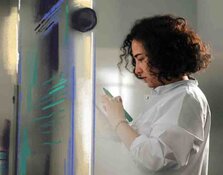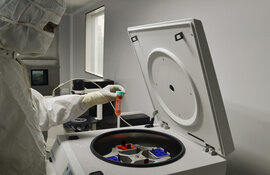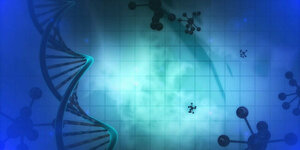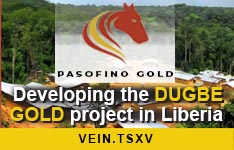Rakovina Therapeutics Inc. (RKV:TSX.V) has announced its financial results for the first quarter ended March 31, 2025.
The Canadian biopharmaceutical company focused on developing DNA-damage response (DDR) cancer therapies using artificial intelligence (AI) reported a net loss of CA$2,179,823, in line with internal expectations. Research and development (R&D) expenses for the quarter were CA$855,594, reflecting continued efforts to advance its AI-powered drug development programs. General and administrative expenses totaled CA$1,224,752, which included investor relations and exchange-related fees. Net cash used in operating activities for the quarter amounted to CA$1,236,924.
In a corporate update, Rakovina noted that certain debenture holders elected to receive common shares instead of cash for part of the May 29, 2025 interest payment. This move allowed the company to preserve cash while meeting its convertible debenture obligations.
The company also announced a CA$4 million strategic financing package in mid-May, consisting of approximately CA$1.1 million in units and CA$2.9 million in equity units. A CA$3 million lead order came from a strategic investor. In conjunction with this financing, Rakovina will seek TSX Venture Exchange approval for a proposed 10-for-1 share consolidation, which is expected to result in approximately 20 million shares outstanding.
Leadership changes detailed in the announcement included the appointment of Dr. David Kideckel as Chief Financial Officer, replacing David Hyman, who will remain involved in an advisory capacity. Additionally, the company announced the planned appointments of Yevgeniy Meshcherekov and Dr. Kideckel to its board of directors, subject to TSX Venture Exchange approval, with Meshcherekov set to become audit committee chair following the retirement of Michael Liggett.
Scientific progress continues to be a focus, with the company presenting pre-clinical data for its kt-2000 and kt-5000 programs at the American Association of Cancer Research (AACR) annual meeting in April. These programs target selective inhibition of PARP-1 and ATR, respectively, both key pathways in DNA repair mechanisms relevant to many cancers. On March 12, 2025, the company also received its first synthesized batch of AI-generated ATR inhibitor compounds developed in partnership with Variational AI.
Biopharma’s AI Shift and Oncology’s DDR Resurgence
The biopharmaceutical sector has seen a growing integration of artificial intelligence across the drug development pipeline, driven by the urgency to reduce time-to-market and meet evolving patient needs. According to a May 28 report, the industry has been embedding AI into every facet of pharmaceutical production to "accelerate the path from scientific discovery to patient delivery" by enhancing speed, efficiency, and decision-making. The use of digital twins for virtual simulations and the application of AI with Internet of Things (IoT) tools have supported real-time monitoring and global supply chain improvements. These tools have enabled biopharma teams to launch new medicines with greater agility while simultaneously increasing production resilience.
Within oncology, a March 25 article in Drug Target Review highlighted the renewed strategic interest in DNA Damage Response (DDR) pathways as a response to persistent challenges such as tumor resistance. It noted that DDR pathways “offer a unique avenue to exploit cancer’s reliance on DNA repair mechanisms,” supporting the development of treatments that can target tumor-specific vulnerabilities while improving overall outcomes. Early DDR therapies, including Poly(ADP-ribose) polymerase inhibitors (PARPi), introduced the concept of synthetic lethality, but newer targets like ATR, WEE1, and MYT1 have broadened the field's scope.
The article emphasized that technological advancements have enabled DDR inhibitors to be delivered with greater precision, stating that "breakthroughs in drug delivery systems, such as antibodies or peptides carrying DNA damaging agents, are significantly expanding the therapeutic window for DDR inhibitors.” Additionally, AI and machine learning have been instrumental in optimizing patient stratification and identifying novel biomarkers, helping tailor DDR-based therapies to individual molecular signatures.
A study published in ScienceDirect on April 22 further supported this view, pointing out that “high-throughput screening platforms and advanced preclinical models have allowed for more effective identification and validation of DDR-targeting agents.” These developments have reinforced the case for DDR-based therapies as viable complements or enhancers to existing oncology regimens.
Driving Forward With AI and Oncology Innovation
Rakovina Therapeutics’ core strategy integrates advanced AI-driven discovery with in-house lab validation and clinical development. Through exclusive partnerships with Deep Docking and Variational AI’s Enki platform, Rakovina screens over five billion molecular structures to accelerate the development of targeted cancer therapies.
The company’s pipeline is built around addressing vulnerabilities in DNA-damage response pathways, with applications in up to 75% of solid tumors. Programs include kt-2000, a PARP-1 selective inhibitor designed to cross the blood-brain barrier and reduce side effects compared to first-generation PARP inhibitors, and kt-5000, a brain-penetrant ATR inhibitor aimed at disrupting cancer cells' reliance on ATR for survival.
According to Rakovina’s Q2 2025 investor presentation, upcoming catalysts include clinical lead selection and ongoing pre-clinical evaluations for both kt-2000 and kt-5000. The company has also indicated potential partnering discussions for its kt-3000 and kt-2000 series and anticipates expanded collaboration outputs from Variational AI for the kt-5000 ATR inhibitor program.
Management points to the company’s fully integrated AI-to-lab workflow and its proven leadership team as key differentiators. The AI approach has already demonstrated real-world potential, including the identification of COVID-19 drug candidates in record time using Deep Docking, as noted by Scientific Advisory Board member Dr. Artem Cherkasov.
With global pharmaceutical investment in DDR-targeting therapies exceeding US$25 billion, Rakovina’s position in this space presents potential opportunities for licensing and partnerships. The company continues to develop its portfolio toward clinical trial readiness while leveraging computational speed, in-lab validation, and targeted design to potentially accelerate time to market.
Analyst Coverage and Upcoming Validation Milestones
First Berlin Equity Research analysts Alexander Rihane and Christian Orquera initiated coverage of Rakovina Therapeutics on April 2 with a Buy rating and a target price of CA$0.40 per share.
The analysts noted that the company’s Deep Docking AI platform had previously demonstrated effectiveness in real-world applications, including the rapid generation of 1,000 potential drug candidates for SARS-CoV-2 within four weeks during the COVID-19 pandemic. They pointed out that one derivative from this effort ultimately became the active ingredient in the antiviral treatment Paxlovid.
They also identified near-term catalysts for Rakovina, including the presentation of two abstracts at the American Association for Cancer Research (AACR) Annual Meeting scheduled for April 25 to 30. These abstracts were expected to include results from in silico screening and follow-up in vitro and in vivo testing related to efficacy, selectivity, and pharmacokinetics. The analysts described this as the first time Rakovina would publicly share real-world validation data on its AI-derived compounds.
Valuation was based on a sum-of-the-parts approach incorporating a risk-adjusted net present value model for the lead assets. With Rakovina trading at CA$0.10 at the time of the report, the analysts’ CA$0.40 target reflected an implied potential return of 300%.
 Streetwise Ownership Overview*
Streetwise Ownership Overview*
Rakovina Therapeutics Inc. (RKV:TSX.V)
Ownership and Share Structure
Edison Oncology owns 17.2% of Rakovina Therapeutics.
Management and Reporting Insiders own 5.9%, with the top two being Jeffrey Bacha and Alfredo De Lucrezia.
The rest is friends/family and retail.
Rakovina Therapeutics Inc. has more than 140 million shares outstanding and a market capitalization of approximately CA$7.03 million. Over the past 52 weeks, its stock has traded between CA$0.23 and CA$0.05.
| Want to be the first to know about interesting Biotechnology / Pharmaceuticals investment ideas? Sign up to receive the FREE Streetwise Reports' newsletter. | Subscribe |
Important Disclosures:
- Rakovina Therapeutics Inc.has a consulting relationship with Street Smart an affiliate of Streetwise Reports. Street Smart Clients pay a monthly consulting fee between US$8,000 and US$20,000.
- As of the date of this article, officers and/or employees of Streetwise Reports LLC (including members of their household) own securities of Rakovina Therapeutics Inc.
- James Guttman wrote this article for Streetwise Reports LLC and provides services to Streetwise Reports as an employee.
- This article does not constitute investment advice and is not a solicitation for any investment. Streetwise Reports does not render general or specific investment advice and the information on Streetwise Reports should not be considered a recommendation to buy or sell any security. Each reader is encouraged to consult with his or her personal financial adviser and perform their own comprehensive investment research. By opening this page, each reader accepts and agrees to Streetwise Reports' terms of use and full legal disclaimer. Streetwise Reports does not endorse or recommend the business, products, services or securities of any company.
For additional disclosures, please click here.




































